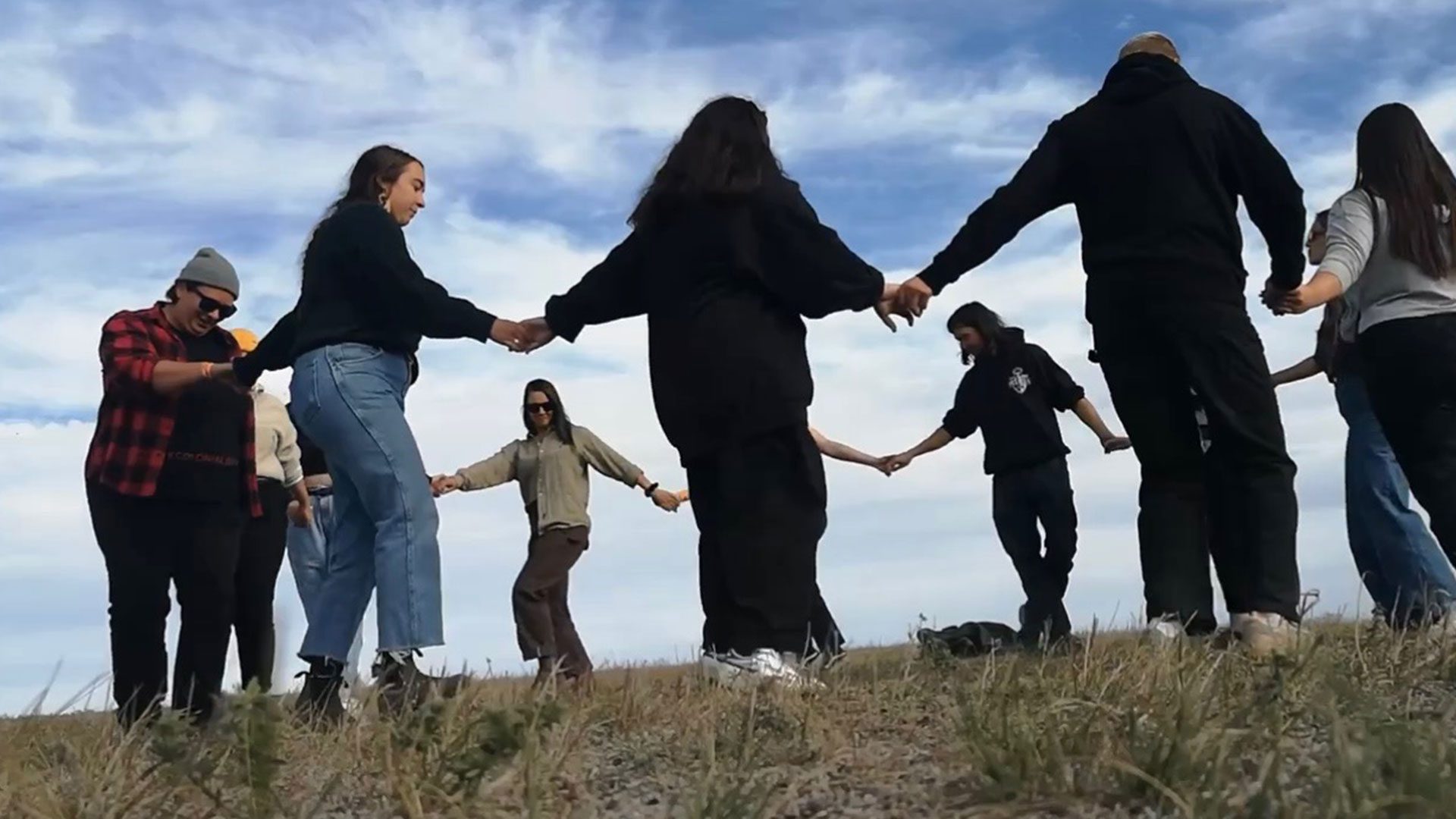Red River Echoes (RRE), a Winnipeg-based Métis advocacy group is taking action to engage Métis with the Manitoba Métis Federation (MMF) – which it says, could use some improvements.
“Coming up on the AGA we have been organized for the last year as a collective getting to know community members, it became very clear to us that a lot of people, a lot of Métis folk who are citizens of the Manitoba Métis Federation don’t have any idea about how the government structure works and how decisions are made,” said founding member of RRE Breanne Lavallée-Heckert.
She led RRE’s virtual workshop on Métis governance in preparation for the MMF’s Annual General Assembly, now available on RRE’s YouTube channel.
Lavallée-Heckert grew up immersed in Métis politics.
“Because my family was involved with the MMF from the beginning of my life, it’s always just been part of what it meant to be Métis,” she said.
A graduate of law from McGill, she worked with other legally trained RRE members to demystify MMF’s governance structures.
“It was response to community and a response to our own collective and how we wanted to feel empowered going into this AGA,” she said.

The MMF is registered as a corporation with power concentrated at the level of the president and a board of directors.
The MMF’s Annual General Assemblies provide an opportunity for members to vote on resolutions but don’t allow members to table their own.
Submitting resolutions is a lengthy process for MMF members. Even if a resolution is approved at the local and regional level, the board of directors can still strike it down.
“Why the choice for corporate governance especially considering that Métis governance has historically favoured decentralized modes of leadership, so that means not vesting power into one single body that is responsible for making decisions but instead there’s wider input,” said Lavallée-Heckert during the workshop.
While most RRE members are cardholders with the MMF, Andrée Forest, another collective member, says some RRE members chose not to renew or register because they don’t feel the MMF represents them.
“If you can’t understand the way your government functions or some of the statements it makes don’t feel like they represent you as a Métis person, and you’re not sure how that speaking point or that message came to exist, the feeling of connection is lost,” said Forest.
The collective formed in spring 2021 after MMF President David Chartrand publicly commended the Winnipeg Police Service despite recent police shootings of Indigenous people. APTN News interviewed RRE members, including Lavallée-Heckert, after Chartrand spoke out against the collective.
Lavallée-Heckert said RRE has since grown through connecting with other Métis people.
“I think we all kind of feel that, that we’re building relationships that are not just new and exciting, but are also ancestral, that all of us, our ancestors worked together to defend these lands, and now a hundred years later, we’re coming together to do the same thing,” she said.

RRE envisions a more participatory form of government with less power concentration.
Their own collective’s governance structure takes the shape of a flower and has rotating leadership roles, inspired by the buffalo hunt legal structure.
“There’s no fixed position of leader, we have the captain model, and so we have captains and co-captains, and that’s inherited from the buffalo hunts,” she explained.
Lavallée-Heckert and Forest both said they recognize the path older Métis have paved for them.
“As young Métis people, as youngish Métis people, we have been lucky to have opportunities to be educated and to learn about how we can help our nation, and it’s not lost on us that all of the opportunities that we have had is because of previous generations who have worked hard for us to be able to be in those spaces. And now we’re just using what we learned,” said
The two also emphasized they do not want RRE to be an opposing force to the MMF, but to provide a voice within it.
“It’s not about taking over, it’s about how can we all come together in a way that we all feel heard and empowered to participate,” said Lavallée-Heckert.









